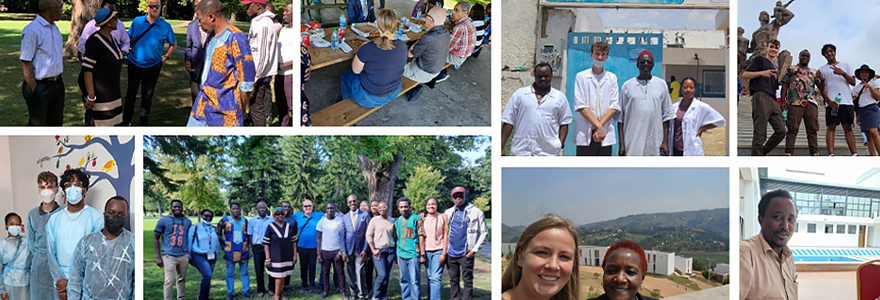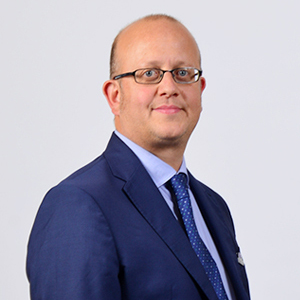Africa Institute finds new ‘virtual’ home at Schulich Medicine & Dentistry

By Communications
For more than 12 years the Africa Institute has been the home for multidisciplinary research by Western faculty focused on Africa.
The Institute now has a new ‘virtual’ home at Schulich School of Medicine & Dentistry. In this Q&A, Dr. Saverio Stranges, who was appointed director in August 2020, describes the growth of the organization and its goals for the future.
How did the Institute get started?
The Africa Institute was established in July 2010 as an interdisciplinary research institute, bringing together scholars across Western University whose work focuses on Africa. It developed organically, with continuing interest of faculty and students Western-wide to engage with Africa and African partners in research, experiential learning and scholarship. The goal was to advance scholarship related to African societies, politics, health, culture, education, ecosystems, and economies; and, to foster initiatives to address some of the most pressing issues facing the continent.
How did you become involved?
My engagement began soon after I was appointed here at Schulich Medicine as Chair of Epidemiology and Biostatistics. I joined the Institute’s advisory board because of my long-standing interest in global health, particularly in Africa. One of my research interests is in the area of cardio-metabolic disease in low-resource settings, particularly in sub-Saharan Africa. I have also worked with several African scholars, and PhD students from African countries who have conducted research on such issues as hypertension in sub-Saharan Africa, and cardiovascular disease among people living with HIV, which is still an endemic disease there. I’ve also done work recently on the impact of COVID in sub-Saharan Africa. So, I have a long-standing interest in Africa.
 Dr. Saverio Stranges, Director, Africa Institute
Dr. Saverio Stranges, Director, Africa Institute
How has the institute grown?
We have tripled membership in the last two years, and have scholars whose work focuses on Africa from very different disciplines. Many students from Africa have come to Western to do their placement here. The Institute is also connected to the Western Centre for Climate Change, Sustainable Livelihoods and Health, co-led by Dr. Isaac Luginaah and myself. The Centre brings together resources and personnel from multiple disciplines across Western and the globe to investigate issues surrounding global environmental issues. Climate change is a clear example of the kind of impactful, interdisciplinary initiative that can be implemented as part of this growing network.
There are also many ongoing scholarly connections to Western, including the Master of Management of Applied Science (MMASc) in Global Health Systems at Schulich Medicine, co-led by Dr. Jessica Prodger and Dr. David Reid at the Faculty of Health Sciences, which takes students to Uganda as part of a summer practicum.
As part of our strategic plan, we have built up our advisory board from 13 members to the 53 with participation from nearly all Western faculties, students and postdoctoral students and external members.
What does the move to Schulich Medicine mean?
While this will be the Institute’s “home” at Western, there will be no change to its interdisciplinary nature, which is extremely important for the research we do. At the same time, there is a particularly strong interest at Schulich Medicine and Dentistry to further develop relationships with African countries. For example, Schulich recently formalized a long-standing partnership with the Joint Clinical Research Centre (JCRC) in Kampala, Uganda. As the Institute’s home base, we can continue to generate and strengthen research, learning, partnership and funding opportunities with African countries, which is a critical part of our goal to increase the impact of our international work.
Describe the importance of the Institute?
Impactful research is interdisciplinary in nature, so I feel a strong commitment to bring together people from different perspectives, which, as a public health scientist, is a natural inclination to have. Our mission is to address African priorities through impactful engagement in knowledge creation and exchange with African partners and in collaboration with other Canadian and global partners.
What do you see as the future of the Institute?
My goal is that Western University will be known for the Africa Institute, and I think we are on that path. We are also interested in having the Institute here to enhance the global visibility of the School. I hope we can attract an increasing number of African scholars, such as Ngianga-Bakwin Kandala in the Department of Epidemiology and Biostatistics, to create a true research hub focusing on Africa here at Western.








